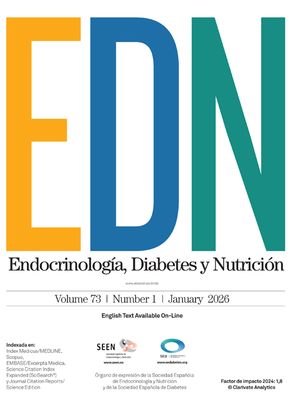In mid-2012, the journal Avances en Diabetología published a special issue analyzing the potential advantages of insulin aspart in different clinical settings.1 The undersigned did not consider its publication appropriate and thought it useful to express our opinion in a letter to the editor.2 A little later, we had the unpleasant experience of finding the situation being repeated, in this case in a linagliptin monograph published in the journal Endocrinología y Nutrición, the channel of communication of the Spanish Society of Endocrinology and Nutrition. Both papers were related to diabetes. Although we took good note of the explanation given by the editorial board of Avances en Diabetología in its reply to our protest letter,3 we think we have reason on our side again.
We therefore feel obliged to take up again the final paragraph of the abovementioned letter and repeat: “The use of the official channel of expression of a scientific society to publish the monograph of a product sponsored by the company manufacturing such a product is another question. The undersigned think that such publication—however it is justified—represents advertising. Mixing the activities of the scientific societies and the pharmaceutical companies is nothing new. It is the basis for the sponsorship of scientific meetings, and one of the reasons for their relative—but progressive—disrepute. It hurts, however, when the same systemic disease reaches the heart of a scientific society and its organ of expression because we might as well register it directly as a trading company”.
After the publication of our first letter and the abovementioned reply to it, we find this painful repetition of the same story, so consolidating a very questionable habit and the undersigned again find themselves questioning the publication of a sponsored product monograph in the official organ of expression of a scientific society. We think that when a product is not analyzed in its context or with its competitors, we are coming close to propaganda, either express or subliminal. And this is not the concept of the organ of expression of a scientific society that we wish to uphold and defend. Amongst other things, this is because it may lead to odd or spurious interpretations which we are all undoubtedly interested in avoiding. An additional reason is that, because of the social and health significance of the concerned issue, the leadership that scientific societies and their organs of expression should exercise must be beyond doubt or it will evaporate. We would not like our scientific society to end up as merely an additional link in the chain of consumption.
With specific regard to the linagliptin monograph, particular mention should be made of the approach proposed: because of the alarming prevalence of diabetes and the frequent coexistence of chronic renal failure, it is particularly appropriate to discuss the adequacy of hypoglycemic drugs in renal failure. This appears to be a planned stage in which—involuntarily, we hope—cardinal issues such as cost-effectiveness are minimized. Increased healthcare expense is too often attributed to demographic factors, ignoring the fact that the economic development of the region concerned and increased technological expense (in the widest sense of the term) are even more important factors.4 We would like to highlight as an example that in the first three trimesters of 2012, almost 12.5 million euros were spent on hypoglycemic drugs (excluding insulins) in Extremadura. Eighty percent of this amount was accounted for by different presentations of DPP-IV inhibitors or GLP-1 analogues, and it is a fact that costs in this field have increased by 200–300% in recent years. At a time when we see cuts being made daily in budget provisions, including expenses on staff and healthcare benefits, which sometimes make access to services difficult or impossible, we must ask ourselves if this increase under the heading of pharmaceutical expense is really supported by clinically relevant results. If, as we suspect, the answer is no, what other factors have influenced this change in prescription?
In this regard, we only want to clearly show that, as stated in the monograph's introduction, the current state of well-being is “evidently threatened”. Our own scientific society recently gave its support to the manifesto “Debate on the risk of irreversible impairment to Spanish public health”.5 We need to consider whether, along with some questionable political decision-making, inadequately based prescription might not be the accomplice of this process?
Please cite this article as: Relimpio Astolfi F, Barroso V, Blanco Carrasco AJ. En relación con el monográfico «Actualización terapéutica para el tratamiento de la diabetes tipo 2». Endocrinol Nutr. 2013;60:409–410.




